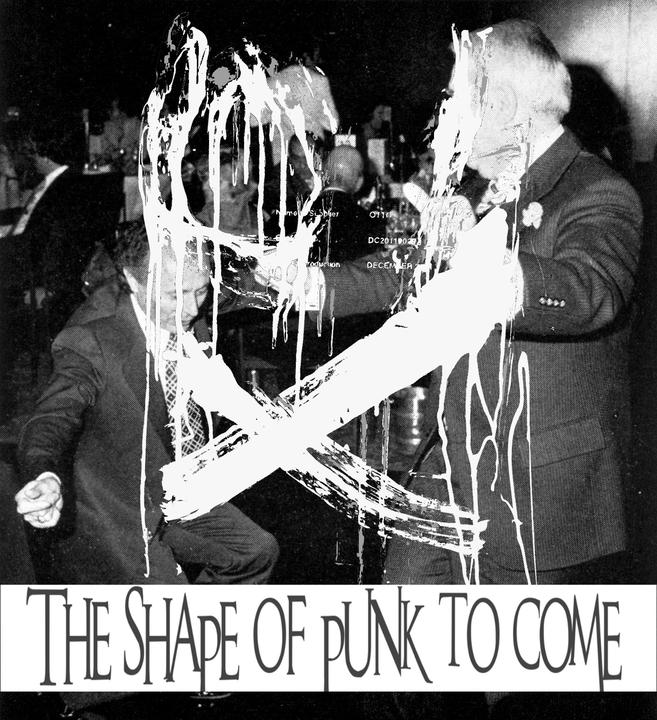

There had been workers’ uprisings before, openly confronting both the State and the institutionalised labour movement, and many far more violent, after 1917 for example. But around 1970, the upheaval had something more global and deeper about it. Contrary to 1871, 1917–21 or 1936–37, capital had penetrated the whole of life in industrialised countries, turned more and more everyday acts and relationships into commodities, and unified society under its dominion. Politics as the confrontation of utterly opposed political programmes was on the way out. In ’68, French unions and labour parties were able to stifle a four or five-million three-week strike, but could no longer put forward a platform alternative to that of “bourgeois” parties. Those who had taken part in the general strike did not expect much more from a possible left government than a more generous welfare. Mixed economy was the order of the day, with an emphasis on State intervention when the left was in power, on market forces when votes swung to the right.
In the 1960s less than now, but a lot more than before the 1939–45 war, commodity relationships mediated the simplest human needs. The American dream is yours if you’re rich enough to buy it: even so, the most desirable car is never the one you’ve just bought, rather the next one on the TV commercial. Goods are always at their best on posters. Just when a Russian-style workers’ paradise was no longer valid, the consumer heaven appeared out of reach. So no future could be found through the factory, neither the nightmare the other side of the Iron Curtain, nor the dreamland this side of the screen. As a result, the workplace declined as a place where to start building a better world. Although the Situationist Society of the Spectacle had few readers at the time, its publication in 1967 was a forerunner of critiques to come. True, that period also meant unionisation for many downtrodden poorly paid workers who finally got into the twentieth century, and only a minority of the working class voiced a refusal of society, rebels with a cause on the fringe of the labour force, the young especially. But the worldwide strike and riot wave remains incomprehensible without its underlying characteristic: mass disaffection for factory and office life. “Who wants to work?” Newsweek asked in the mid-1970s.
Still, nearly all sit-downs occupied the workplace and went no further. There were many transgressing gestures: takeover of gas and transport services by Polish strikers in 1971, Italian self-reduction, squatting, “giveaway” “social” strikes by bus drivers, hospital staff, and supermarket cashiers providing transport, health care, and food free of charge, electricity workers cutting off supplies to bureaucrats or firms, and a thousand other instances. Yet hardly any turned into a beginning of communisation. The disruption of work and the trespassing of commodity did not merge into an attack on work-as-commodity, i.e. wage labour as such. From prison to child education, everything came under fire, yet the assault remained mainly negative.
The lack of creative attempts to transform society gave the impetus back to capitalism.
Historical upheavals have no date of birth or death, but surely Fiat was more than a symbol—a landmark. For years the Turin firm had been plagued by permanent stoppages of assembly lines, mass absenteeism and meetings on the premises. However, organised disorder did not transcend negation into something positive. Thus the management was able to break a (fairly large) minority, with the passive help of a weary majority fearing for their jobs. Radicals had disrupted a social logic, not shifted into a new one. Violent (even armed) actions gradually disconnected from the shop floor. In 1980, the company laid off 23,000 out of 140,000: the factory went on strike for thirty-five days, until a mix of 40,000 Fiat workers, clerks, and middle managers took to the streets against the strike. The unions signed a compromise whereby the 23,000 got State compensation money, and later many more thousands were sacked through rationalisation. On such turning points was the social surge of the 1960s–70s reversed.
Logically, worker class defeat was translated into political terms, on all sides of the political spectrum. On the right, Thatcher and Reagan epitomised the liberal swing. On the left, the French Socialist Party came to power in 1981, only to turn to austerity after two years. British Labour embraced market economics. The Italy CP used to get as much as 30 percent of overall vote in the 1970s: it gradually gave up any extremist appearances, became the Party of the Democratic Left, dropped the hammer and sickle, evolved into the Democrats of the left and later a mere Democratic Party.
John Silver